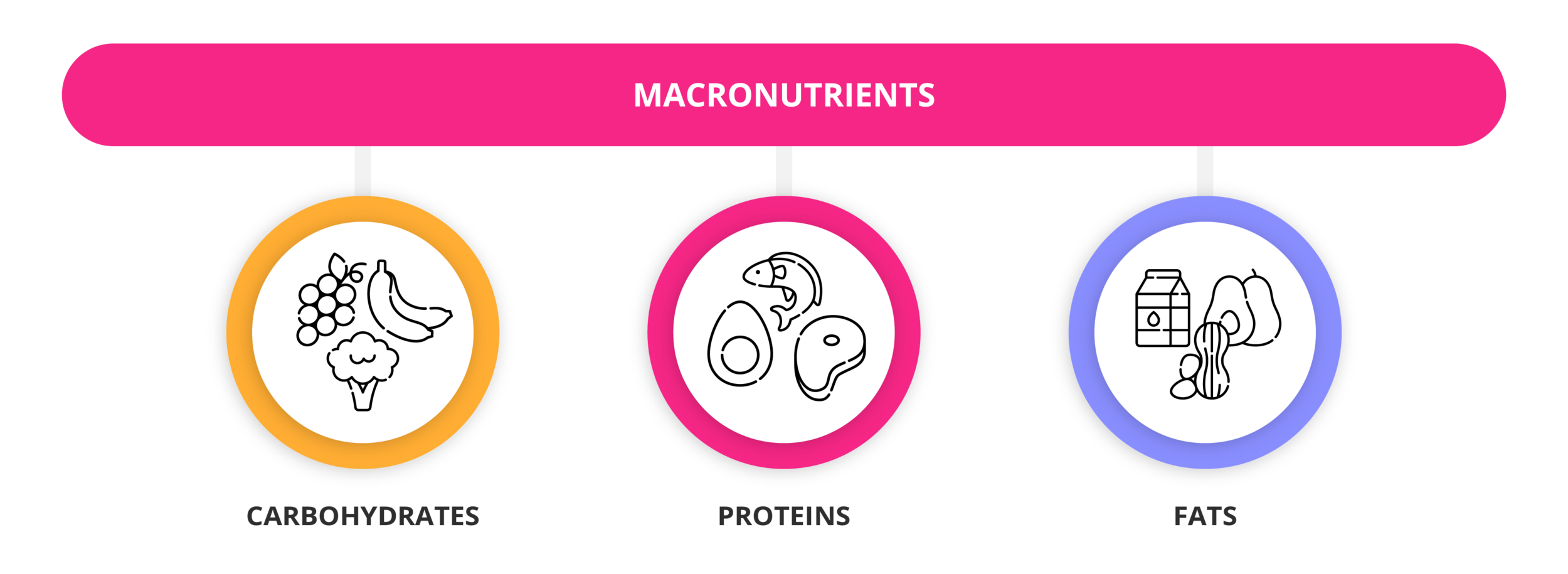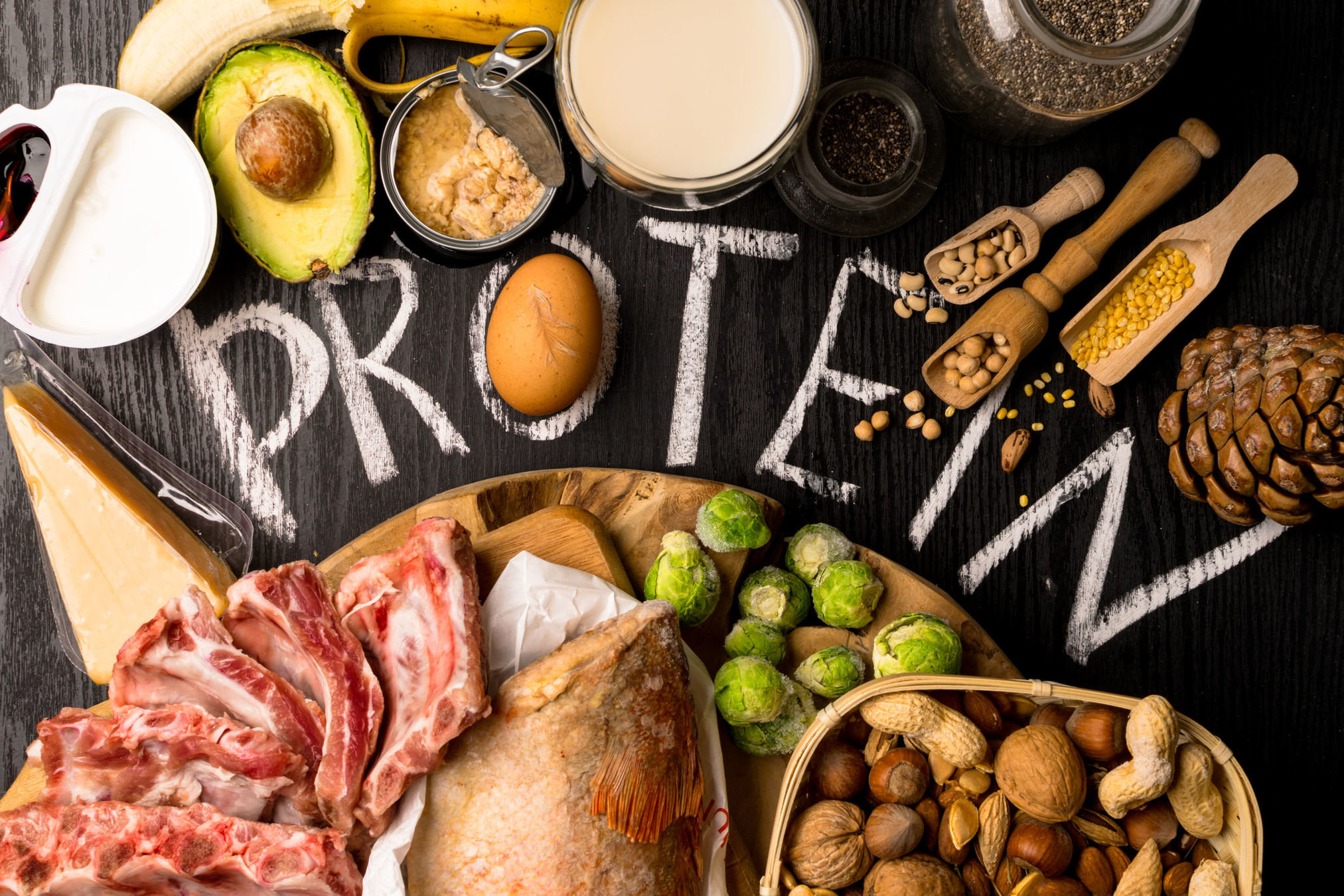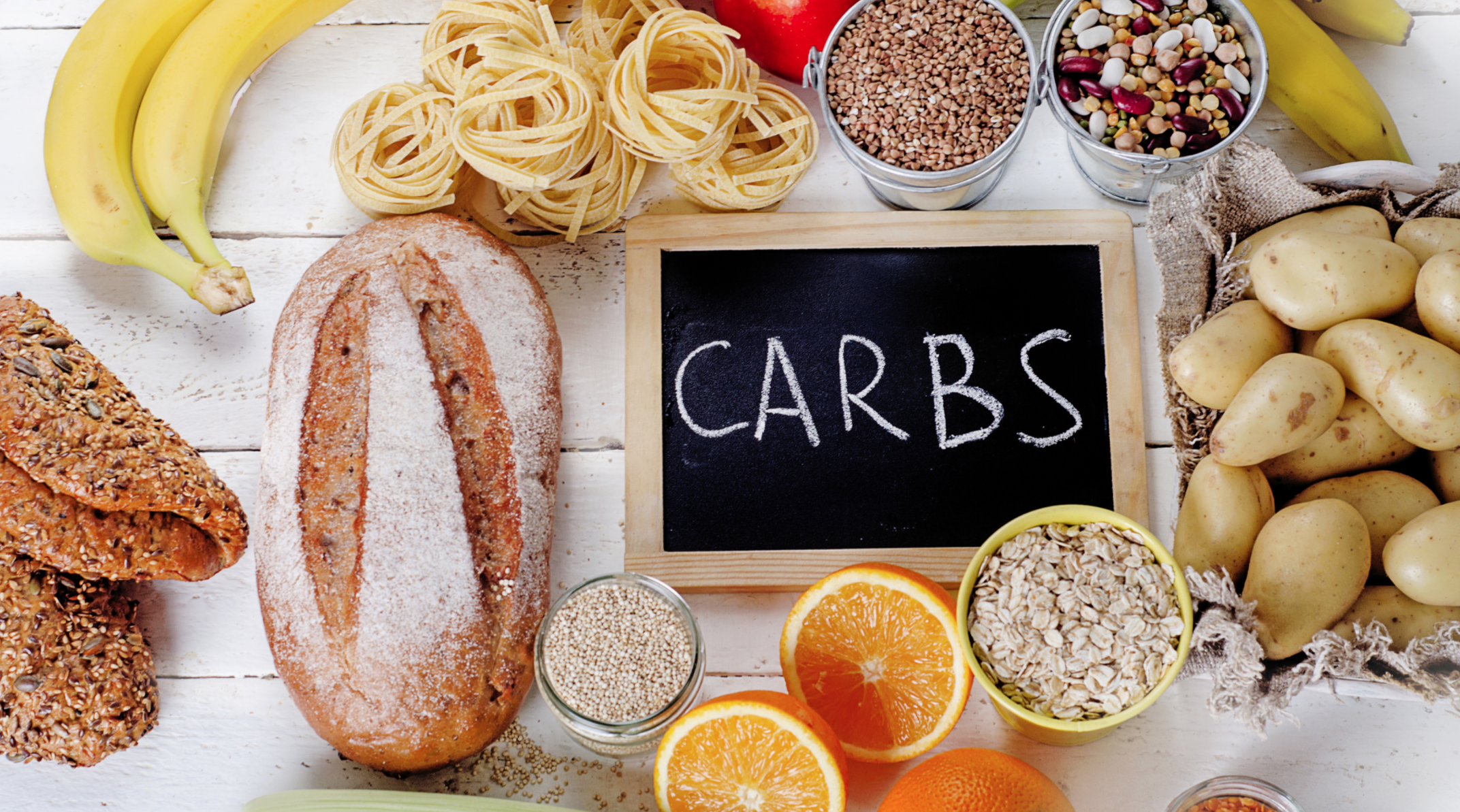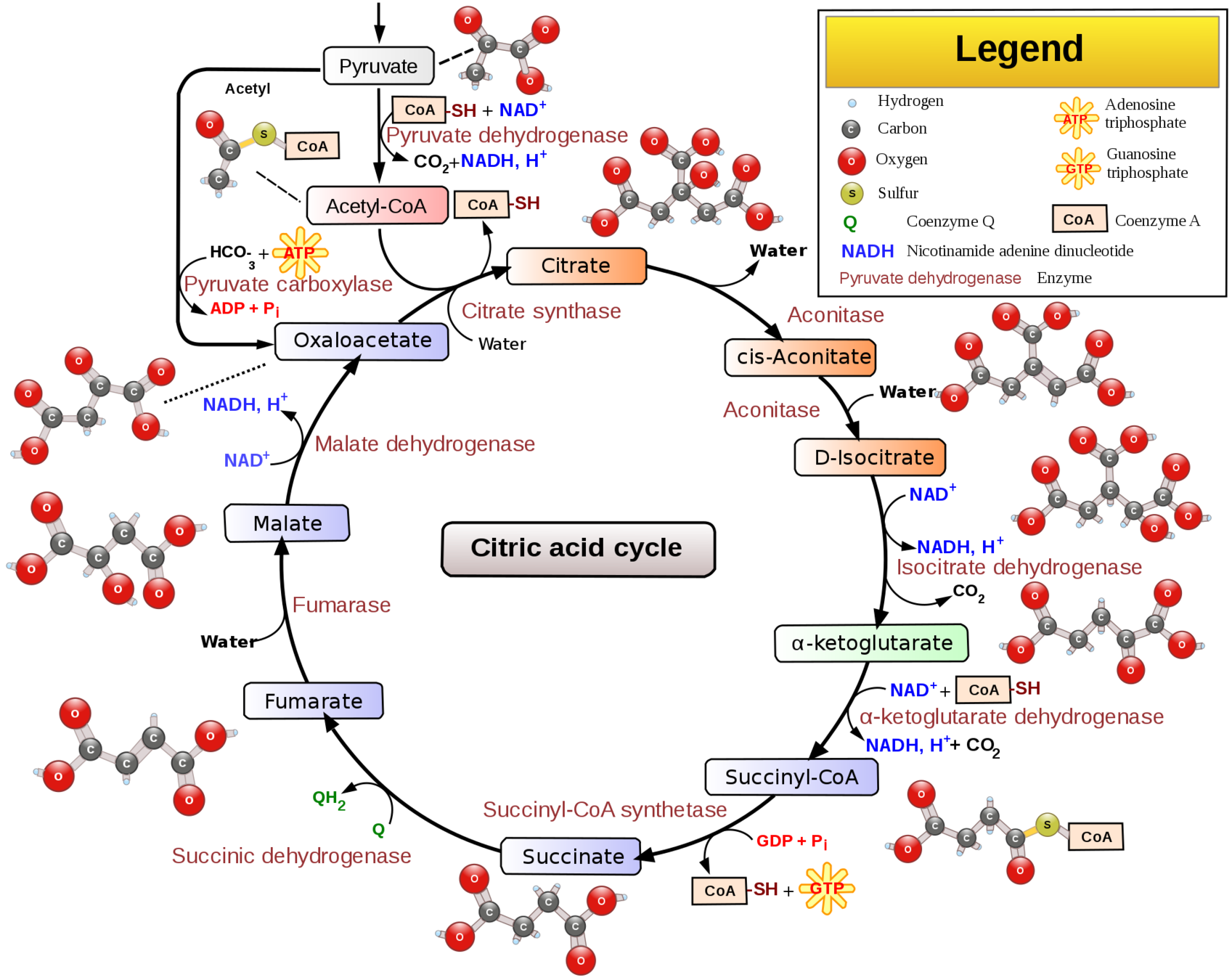What is "Keto" and How Does It Work?
Human Energy Metabolism Made Simple(er)
Kirk Haines
wyhaines@gmail.com
Macronutrients

Macronutrients

Protein is used to build the stuff that makes us.
- muscles
- connective bits
- brains
- organs
- enzymes
- etc...
They are essential in our diet.
Macronutrients
Fats are used for energy.
Fats are also used along with proteins to enable the myriad chemical processes that make everything in our bodies work.
Fats are essential nutrients in our diet.

Macronutrients

Carbohydrates are used only for energy.
They are not used for any chemical other metabolic processes.
They are not essential to our diets.
Energy

It is complicated.
Energy

4 calories / gm
4 calories / gm*
9 calories / gm
The basics are simple.
Energy

4 calories / gm*
Energy from protein is a last resort. It takes about 1 calorie per gram to turn it to energy.
So, Keto?
2 Main Energy Sources
Carbohydrates
Fats
So, Keto?
Carbohydrates
- They are all turned into sugar (glucose, stored as glycogen) by the body.
So, Keto?
Carbohydrates
- They are all turned into sugar (glucose, stored as glycogen) by the body.
- Quick energy; chemically fast to transform glycogen to usable energy.
So, Keto?
Carbohydrates
- They are all turned into sugar (glucose, stored as glycogen) by the body.
- Quick energy; chemically fast to transform glycogen to usable energy.
- Some cells in the body require glycogen for energy.
So, Keto?
Carbohydrates
- They are all turned into sugar (glucose, stored as glycogen) by the body.
- Quick energy; chemically fast to transform glycogen to usable energy.
- Some cells in the body require glycogen for energy.
- BUT, the body can make glycogen from fat to meet this small demand.
So, Keto?
Carbohydrates
- They are all turned into sugar (glucose, stored as glycogen) by the body.
- Quick energy; chemically fast to transform glycogen to usable energy.
- Some cells in the body require glycogen for energy.
- BUT, the body can make glycogen from fat to meet this small demand.
- Very low capacity to store glucose; around 1500 calories total.
So, Keto?
Carbohydrates
- They are all turned into sugar (glucose, stored as glycogen) by the body.
- Quick energy; chemically fast to transform glycogen to usable energy.
- Some cells in the body require glycogen for energy.
- BUT, the body can make glycogen from fat to meet this small demand.
- Very low capacity to store glucose; around 1500 calories total.
- Glucose is toxic; only about 4 grams (16 calories worth) actually circulates in the bloodstream. More than that causes damage.
So, Keto?
Carbohydrates
- They are all turned into sugar (glucose, stored as glycogen) by the body.
- Quick energy; chemically fast to transform glycogen to usable energy.
- Some cells in the body require glycogen for energy.
- BUT, the body can make glycogen from fat to meet this small demand.
- Very low capacity to store glucose; around 1500 calories total.
- Glucose is toxic; only about 4 grams (16 calories worth) actually circulates in the bloodstream. More than that causes damage.
- Insulin is released to push glucose into muscle tissue and to send it to the liver.
So, Keto?
Carbohydrates
- They are all turned into sugar (glucose, stored as glycogen) by the body.
- Quick energy; chemically fast to transform glycogen to usable energy.
- Some cells in the body require glycogen for energy.
- BUT, the body can make glycogen from fat to meet this small demand.
- Very low capacity to store glucose; around 1500 calories total.
- Glucose is toxic; only about 4 grams (16 calories worth) actually circulates in the bloodstream. More than that causes damage.
- Insulin is released to push glucose into muscle tissue and to send it to the liver.
- The liver stores a small amount (500) calories, and turns the rest into fat.
So, Keto?
Insulin
- Signaling hormone; with several important functions.
So, Keto?
Insulin
- Signaling hormone; with several important functions.
- Tells cells to prioritize sugar for energy.
So, Keto?
Insulin
- Signaling hormone; with several important functions.
- Tells cells to prioritize sugar for energy.
- Tells the liver to turn sugar into fat.
So, Keto?
Insulin
- Signaling hormone; with several important functions.
- Tells cells to prioritize sugar for energy.
- Tells the liver to turn sugar into fat.
- Suppresses the burning of fat.
So, Keto?
Fats
- Carry fat soluble vitamins and are used in many critical biochemical processes.
So, Keto?
Fats
- Carry fat soluble vitamins and are used in many critical biochemical processes.
- Store energy efficiently.
So, Keto?
Fats
- Carry fat soluble vitamins and are used in many critical biochemical processes.
- Store energy efficiently.
- Even very lean people have tens of thousands of stored calories available.
So, Keto?
Fats
- Carry fat soluble vitamins and are used in many critical biochemical processes.
- Store energy efficiently.
- Even very lean people have tens of thousands of stored calories available.
- Slower to oxidize than carbohydrates.
So, Keto?
Fats
- Carry fat soluble vitamins and are used in many critical biochemical processes.
- Store energy efficiently.
- Even very lean people have tens of thousands of stored calories available.
- Slower to oxidize than carbohydrates.
- Ketones are the key component of fat metabolism and are generated from it.
So, Keto?
Fats
- Carry fat soluble vitamins and are used in many critical biochemical processes.
- Store energy efficiently.
- Even very lean people have tens of thousands of stored calories available.
- Slower to oxidize than carbohydrates.
- Ketones are the key component of fat metabolism and are generated from it.
- Little energy packets circulating in blood; depend on passive transport, not active.
So, Keto?
Fats
- Carry fat soluble vitamins and are used in many critical biochemical processes.
- Store energy efficiently.
- Even very lean people have tens of thousands of stored calories available.
- Slower to oxidize than carbohydrates.
- Ketones are the key component of fat metabolism and are generated from it.
- Little energy packets circulating in blood; depend on passive transport, not active.
- This is important with aging; active transport efficiency goes down.
So, Keto?
Fats
- Carry fat soluble vitamins and are used in many critical biochemical processes.
- Store energy efficiently.
- Even very lean people have tens of thousands of stored calories available.
- Slower to oxidize than carbohydrates.
- Ketones are the key component of fat metabolism and are generated from it.
- Little energy packets circulating in blood; depend on passive transport, not active.
- This is important with aging; active transport efficiency goes down.
- Brains need lots of energy; ketones can fuel brains passively.
Quick Recap
- A small amount of Carbohydrate is required metabolically, but the body can make it's own from stored fat.
- Eating carbohydrates triggers insulin release.
- Insulin suppresses fat metabolism.
- Thus, the body can and will only use fat as primary energy source if consumed carbohydrate is fairly low.
Keto is Ketosis
Nutritional ketosis is the metabolic state where fat is the primary fuel for the body.
It is triggered when the carbohydrate stores in the liver are depleted, and is generally maintained on < 200 calories from carbs a day.
Ketosis Is Normal
Babies are born in ketosis, and stay in it for a long time. It helps stimulate brain development.
Ketosis Is Normal
Before intensive agriculture, high carbohydrate foods were a rare treat, and high fat/protein food was the daily fare. People lived their daily lives in nutritional ketosis.
Ketosis Has Advantages
Ketones are anti-inflammatory
Ketosis Has Advantages
Because of passive transport, ketones are good brain fuel, particularly as people age.
Ketosis Has Advantages
Strong studies support the use of a ketogenic diet as a tool against alzheimer's disease and dementia because it enables more energy to get to energy starved brain cells.
Ketosis Has Advantages
Blood sugar control is greatly improved when one no longer eats sugars and starches.
Ketosis Has Advantages
Blood triglyceride levels improve (go down).
Ketosis Has Advantages
Hunger is blunted
Lack of focus from not eating isn't really something that happens on ketosis.
Being "hangry" isn't something that typically happens, either.
You always have plenty of fat for energy in between meals.
Ketosis Has Advantages
Endurance Athletics in Particular Can Benefit
- No "bonk" effect.
- It takes about 6 weeks for performance to rebound
- Only if someone has been historically getting most of their energy from carbs!
- New mitochondria growth takes 4-6 weeks
- Studies in gymnasts show that fast twitch strength recovers in that time, too.
Ketosis Has Advantages
Me, finishing a 52 mile run in nutritional ketosis.
I've lived primarily in ketosis
for about 6 years after being
told that I was prediabetic.
Keto Is Simple
Don't Eat a Lot of Sugar and Starch
Eat other stuff.
Your body is made to do this.